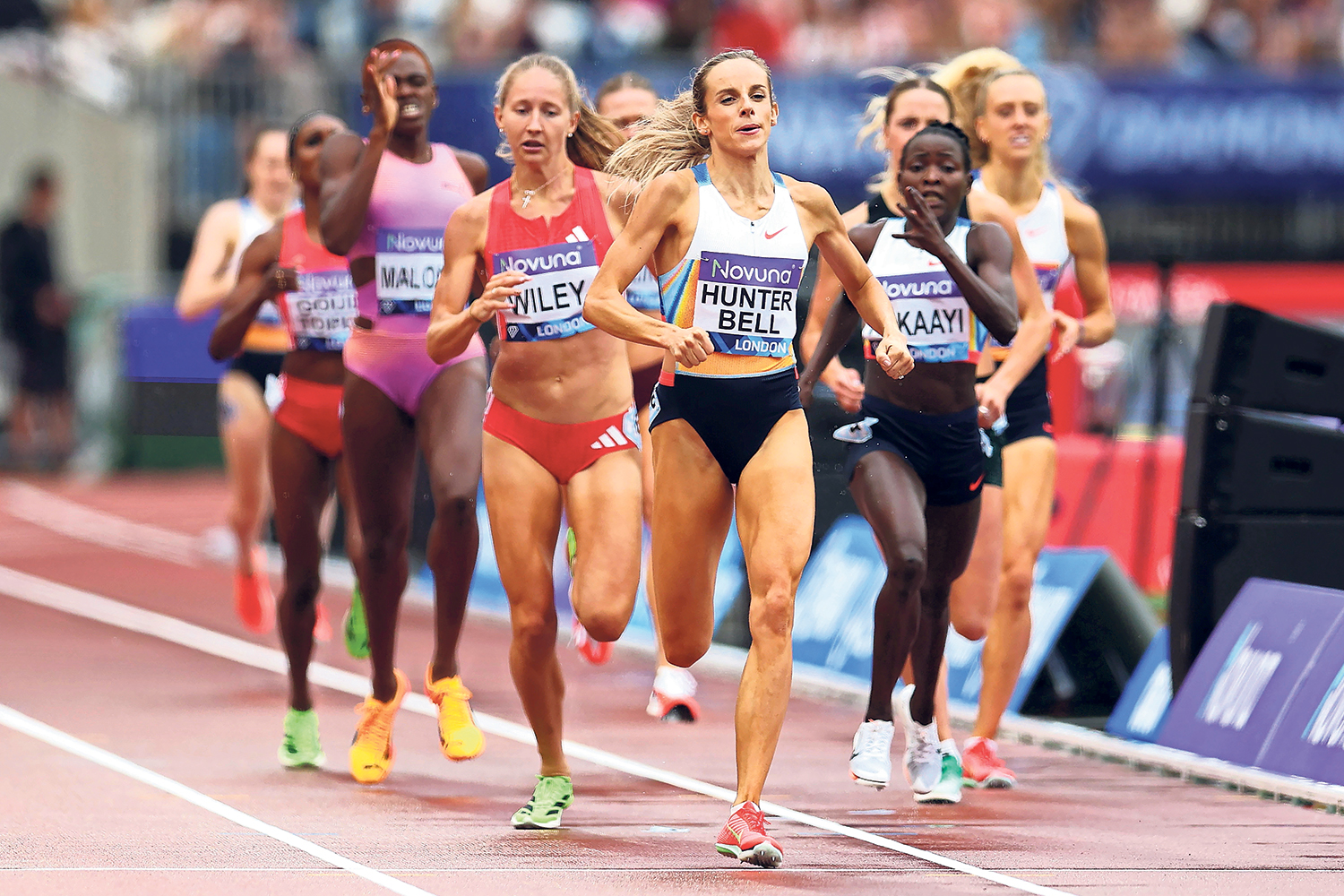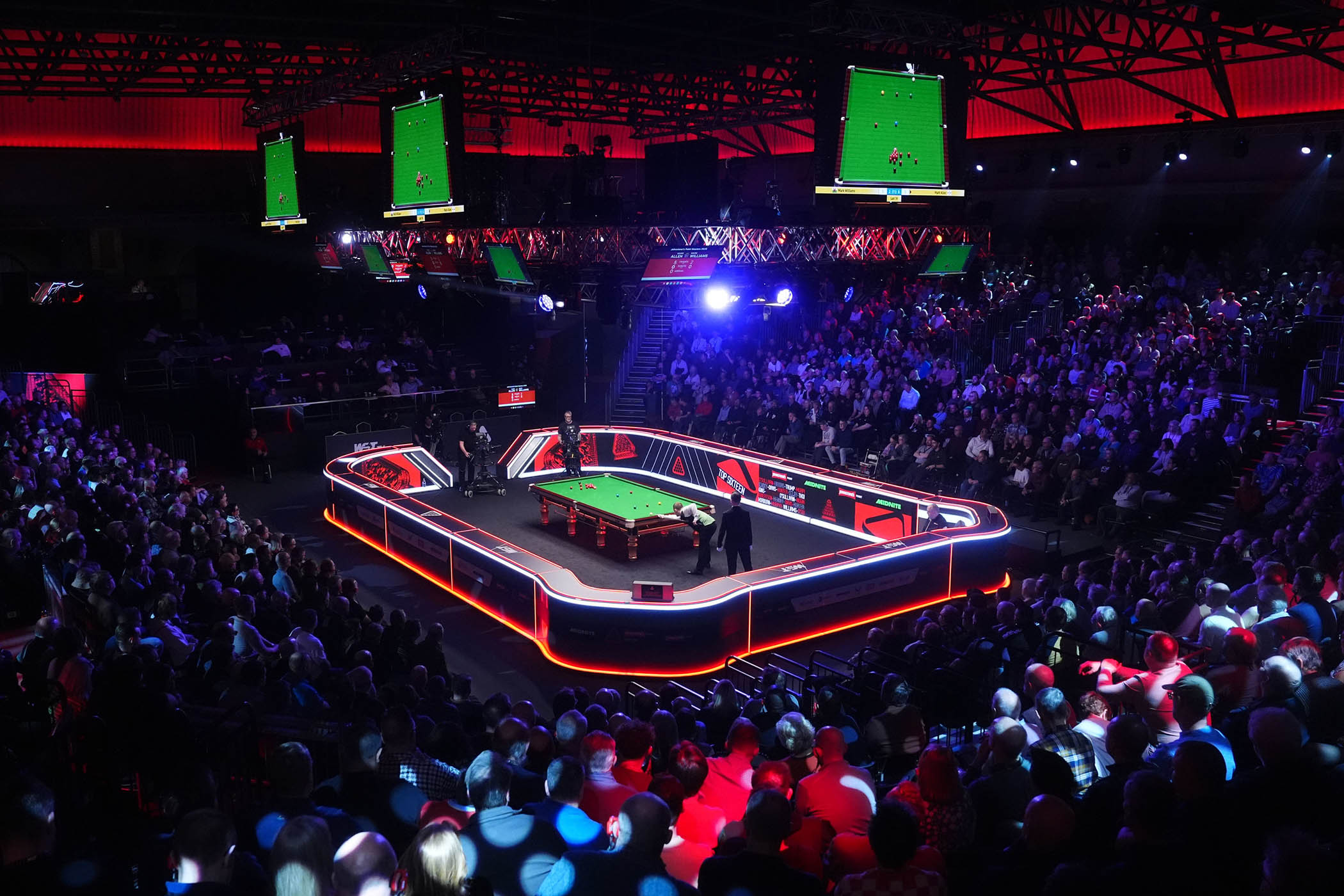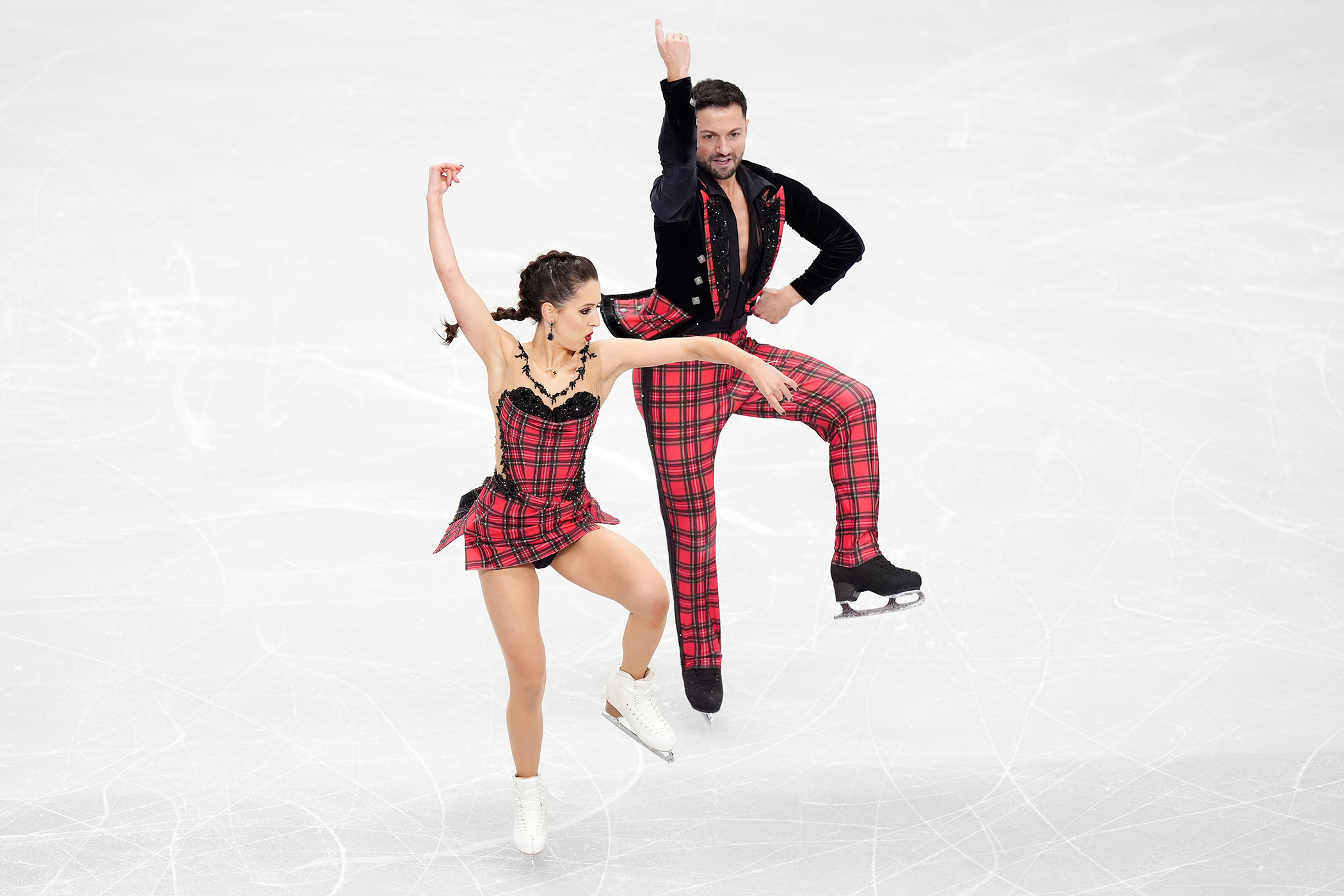However much they tell themselves they are masters of their own destiny, a sportsperson is largely beholden to the era they are either fortunate or unlucky enough to operate in.
How many more grand slam titles might Roger Federer, Rafa Nadal or Novak Djokovic have won without one, or two, of the others plying their trade at the same time? How differently might the lionhearted Crisp be viewed if Red Rum had not lined up for the 1973 Grand National and so brutally hunted him down after the elbow?
This time last year, Georgia Hunter Bell was a 1500m runner. Well, she was a cyber security expert on a sabbatical from her day job to focus on the Olympics.
Her first year as a full-time runner went rather well, earning her an Olympic bronze medal and British record. But, through no fault of her own, the landscape has shifted somewhat this summer.
Earlier this month, Hunter Bell ran the second-fastest 1,500m time of her life in a Diamond League race so quick that it was only good enough for fourth. A few weeks earlier she finished sixth at another.
Meanwhile, she has started testing herself over 800m, with notable results. Her victory over 800m in London on Saturday provided her with a second win in her past two Diamond League races over the distance. In the absence of her training partner, and Olympic champion, Keely Hodgkinson – who is expected to return from a hamstring injury in the coming weeks – 800m times have stagnated somewhat, meaning Hunter Bell is suddenly a contender for gold at September’s World Championships.
A dilemma has arisen. If the global state of your sport shifts, should you change tact in response?
“You’ve got to look strategically at the events,” said Hunter Bell. “The 1500m has got even faster than last year. I didn’t think that was possible, but it has again.
Related articles:
“Whereas the 800m, at the moment, is not as fast as it was last year. So it’s kind of thinking, if you’re trying to get a medal, what is actually the best thing to do?”
‘The world title lives here and it will continue to live here for the next year.’
‘The world title lives here and it will continue to live here for the next year.’
British world champion Josh Kerr
In fact, the decision facing Hunter Bell is not necessarily either/or. Go back a few decades to the thrilling Seb Coe and Steve Ovett era, and middle-distance athletes would routinely compete over both 800m and 1500m at major championships.
Newsletters
Choose the newsletters you want to receive
View more
For information about how The Observer protects your data, read our Privacy Policy
That particular double has fallen out of fashion in recent times, but the timetable for the upcoming World Championships allows for someone to make an audacious assault on it.
“The schedule’s actually quite generous for it,” said Hunter Bell. “There’s proper days off; one event completes before the second starts.
“But I just think it’s really hard and you might stuff your chances at both. I might actually reach out to Kelly Holmes and see what she thinks. A lot of people can have their opinion but there’s very few that have actually done it. I’d like to see what Kelly has to say about it.”
For someone facing Hunter Bell’s predicament, there can be few better mentors than an athlete who won a memorable Olympic 800m and 1,500m double of their own in 2004.
After sitting off the pace for much of proceedings, Hunter Bell’s victory was fairly comprehensive, triumphing in one minute 56.74 seconds – the second-fastest time of her life and a close second on the world list this year. America’s Addison Wiley was runner up, while British duo Jemma Reekie and Laura Muir finished down the pack.
How Hunter Bell might have fared with Hodgkinson on the startline remains the unanswerable question. Only those two know how well-matched they currently are in training every day, with Hodgkinson yet to race in almost a year since winning her Olympic title. She withdrew from the London meet, but still has her sights firmly set on the World Championships. Her main rival may well come from within her own group.
The men’s 1500m was also denied a tantalising head-to-head between Jakob Ingebrigtsen and Britain’s world champion Josh Kerr when the Norwegian pulled out through injury. The expectation was that a battle of the Brits would replace that, with Kerr taking on his predecessor as world champion, Jake Wightman, and George Mills, who recently moved second on the national all-time standings.
That none of them triumphed was a shock, as was the identity of the winner. Kenyan 18-year-old Phanuel Koech had never run a 1,500m race prior to last month, but has since run three of the six fastest times in the world this year. His 3:28.82 in London was the second of those and sufficient to beat a chasing Kerr. Still on the return from a hamstring tear, Wightman could only finish fourth, while Mills’s challenge ended when he came crashing down after a trip with 200m remaining.
Asked if he thinks the world title will stay in Britain, Kerr said: “Yeah, 100 per cent. The title lives here and it will continue to live here for the next year.”
Elsewhere, Saint Lucia’s Julien Alfred beat Dina Asher-Smith in the 200m, and America’s Olympic champion Noah Lyles finished second over 100m behind Oblique Seville, of Jamaica.
There were home wins for Charlie Dobson, who beat Olympic silver medalist Matt Hudson-Smith in the 400m, and high jumper Morgan Lake.
Photograph by S Bardens/British Athletics/Getty Images



